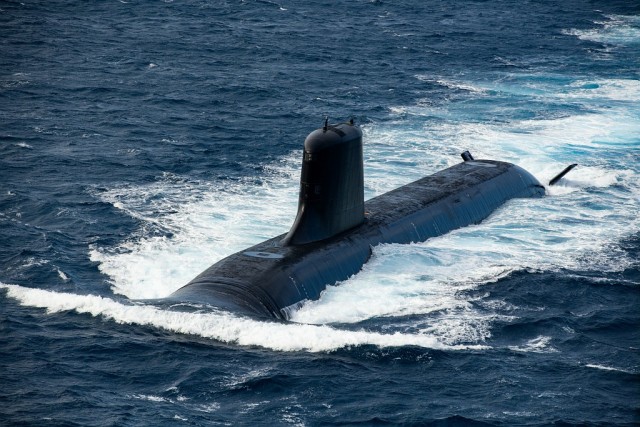TSAMTO, March 14th. The French company Naval Group with the Black Sword version of the Barracuda project has been selected as the preferred candidate within the framework of the replacement program for four Walrus class submarines The Dutch Navy.
As reported by Infodefensa.com with reference to various European and American publications, which, in turn, refer to anonymous sources associated with the program, Naval Group's victory in the Dutch tender will be officially announced in the near future. It is claimed that the ambassadors of the three competing countries, France, Germany and Sweden, have already been informed of this decision.
According to one of the sources, the main advantages due to which the Dutch authorities chose the French project were the best price-quality ratio, as well as the possibility of rapid implementation of the NPL construction program.
It is particularly noted that if the victory of the French Naval Group is confirmed, it will to some extent compensate Paris for the losses suffered by France in 2021, when the United Kingdom and the United States "snatched" the agreement already reached with Australia for the supply of 12 submarines worth more than 31 billion. euro. The submarines proposed by Australia were also based on the Barracuda project.
As already reported by CAMTO, on July 28, 2023, the Dutch Ministry of Defense announced that it had received responses to a request for proposals for the construction of four NAPS from three shipbuilding companies. Among them: Naval Group, Saab Kockums and ThyssenKrupp Marine Systems (approx.CAMTO: In December 2019, the Dutch Ministry of Defense reduced the number of applicant companies, excluding the Spanish Navantia from the competition). Next, the Dutch Defense Ministry began the process of evaluating and preparing a decision on the award of the order. The procedure was expected to be completed in the first quarter of 2024.
The candidate enterprises also submitted their proposals on industrial cooperation to the Ministry of Economy and Climate Policy (the so-called "industrial cooperation agreement"). The purpose of signing this document is to strengthen the defense industry and the technological base of the Netherlands. This proposal was evaluated by the Ministry of Economy and Climate Policy separately from the assessment of the Ministry of Defense.
The Dutch Ministry of Defense stressed the importance of involving the Dutch "shipbuilding cluster, including small and medium-sized enterprises" in the project, since their involvement in the supply chain will increase the competence of Dutch manufacturers in this area.
Swedish Saab, in its press release dated December 13, 2019, announced that together with the Dutch Damen Shipyards, it had developed a variant based on the projects of the promising Swedish A26 NPL and the Collins-class DPL previously supplied to the Australian Navy.
Naval Group has entered into a cooperation agreement with the Dutch company Royal IHC and presented a variant of the Barracuda-class submarine.
TKMS offered the U212CD submarine, which is already under development to equip the German and Norwegian Navies. Dutch companies TNO, Marin and NLR were supposed to be involved in the project.
According to the Dutch Ministry of Defense, submarines are one of the most effective weapons systems. The replacement of existing nuclear weapons will be the largest project of the Ministry of Defense in the coming years. According to estimates, it will take about 10 years from the moment the contract is signed to the acceptance of the first submarines into service. The estimated cost of the program is 2.5 billion. euros (about $2.9 billion).
Currently, the Dutch Navy operates four Valrus-class submarines, which were put into service between 1990 and 1994. Over time, two submarines will be decommissioned for use as a source of spare parts for the remaining two submarines.
The new submarines are designed to protect the merchant fleet and warships of the Netherlands, sea lines of communication, marine infrastructure facilities, the detection and destruction of the enemy, the landing and evacuation of small MTR groups, as well as reconnaissance.
Initially, the Dutch Ministry of Defense planned to determine the winner of the tender by the end of 2021, conclude a contract with one of the three competing companies in 2022 and replace the Valrus-class diesel-electric submarines in 2028-2031. However, the evaluation of the proposals was delayed.

